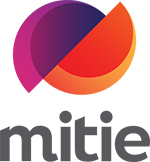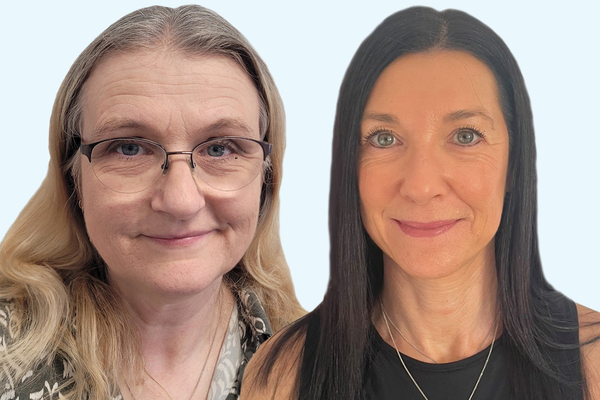Community investment
Social value and community wellbeing are vital measures of success, says Robert Carroll, head of community investment with Mitie Property Services

Written in association with:

What does social value and community investment mean to you?
Social value is the impact of an organisation’s involvement in the wellbeing of individuals and communities, on social capital and the environment. Community investment is the catalyst and demonstrable output that delivers the outcomes which will show a social value.
How did you come to work in the field?
I’ve always been interested in people and wanted to be part of the chain that helps change individuals’ lives for the better.
I’ve been working in worklessness and community outreach projects for 10 years now. During that time, I’ve worked with vulnerable people who experience a range of obstacles in their lives. These obstacles don’t define who they are, and with help and support, you can help them turn things around. Being aware of people and the issues and obstacles they experience in their lives helps you become more of an active citizen. There’s a lot of reward in that.
Would you recommend a career in community investment to other people?
Absolutely - it’s one of the most rewarding careers you can have. From when someone comes through the door lacking direction and confidence, you’re able to work with them to give them work experience or undertake community projects - there’s always an end result. You can really see how your contribution has helped make that difference. There are very few careers that reward you over and over again in that way.
Why do you think this is an important subject?
I think the argument around social value comes down to morals. Given the challenges social housing is facing, it’s becoming more and more important to see what contribution organisations can make to society.
The introduction of the Public Services (Social Value) Act 2012 requires all public bodies to consider the social value of services. As a consequence, our clients are increasingly seeing their commissioners ask for evidence of the additional social value for the services that they fund. With less money available from the public purse, this new act requires commissioners to look at the social, economic and environmental benefits that go beyond the main scope of the contract.
What notable projects have you worked on to date?
One of the most significant and impactful projects that I’ve worked on would be the Health MOT Roadshow ‘proof of concept’. This consisted of a mobile van travelling across Kent delivering health checks and health and wellbeing advice to local people. It was a collaborative venture involving Kent County Council, Golding Homes and Wellbeing People.
The numbers speak for themselves. Since the ‘proof of concept’ was launched, we’ve achieved 206 engagement days with over 22,000 people. We’ve delivered 4,617 health MOTs, given 1,460 NHS Health Checks and generated over 1,000 other forms of referrals.
Another big success has been our apprenticeship programme, where we’ve targeted hard-to-reach candidates (such as people with disabilities and ex-offenders), and across Mitie we’re currently training over 2,000 apprentices. We even won an award recently for our apprenticeship programme, presented to us in the Palace of Westminster, and were recently named a finalist for the Apprenticeships 4 England Employer Award.
What was the outcome?
The Health MOTs have been a great success. Aside from the numbers of people involved, most importantly we’ve helped increase awareness of health and wellbeing, especially among those categorised as hard to reach.
Through our apprenticeship programme, over 2,000 people have acquired valuable skills and training. What’s more, retention is really high, with over 90% of people staying on at Mitie after their apprenticeship.
How can you best measure success in social value, and do you need to?
You absolutely need to measure success. Measurement and reporting strategies should be tailored to a specific business and both financial and non-financial objectives should be considered. For example, we measure training and employment, retention rates, customer satisfaction and other broader elements too, such as spending on suppliers and in the local economy.
Measuring social value allows us to place a value on all the activities we’ve taken part in and helps us analyse the outcome. By measuring change in ways that are relevant to the people or organisations that experience or contribute to it, it is possible to apply a monetary value to the change.
What are the main challenges in delivering social value?
For me I would say there are three key challenges. First would be lack of strategy. Very often activities, programmes and events occur on an ad-hoc basis which means you don’t get the most out of your service provider.
Second would be agreeing outcomes. There’s a lot of administration and talk around agreeing what the outcomes should be. This leads to delays, uncertainty and indecision. The ability to deliver outcomes is wholly dependent on an agreed focus.
Third is reporting and measuring the impact of social value. It’s important to agree the metrics of measuring social value. This is vital to evidencing and communicating the changes and benefits being delivered.
Despite these challenges, with a flexible, supportive and enthusiastic approach, there’s no reason these challenges can’t be overridden.
What impact do you think the current, quickly-changing operating environment will have on the delivery of social value in communities?
Pressures on public service spending are an obvious challenge. However, with cuts to public funding, the need to provide services to the community becomes even greater. Being flexible and adaptable are key qualities in order to maintain momentum in delivering social value.
A great number of people we meet and work with are vulnerable and disadvantaged. Through community engagement and investing in skills centres and apprentices, this provides local people with skills and experience they wouldn’t have otherwise had, which enables them to secure a job and contribute to the local economy.
What do you think the future holds for community investment?
I feel we will need to revert to traditional tried-and-tested approaches, such as enhancing social capital and working together with all stakeholders to maximise social impact. This places an emphasis on building upon community capacity and self-reliance that will lead to more sustainable communities.

Biography
Robert Carroll is Mitie Property Services’ head of community investment. He has more than 10 years’ experience working in the public, private and voluntary sectors in the area of community development.










